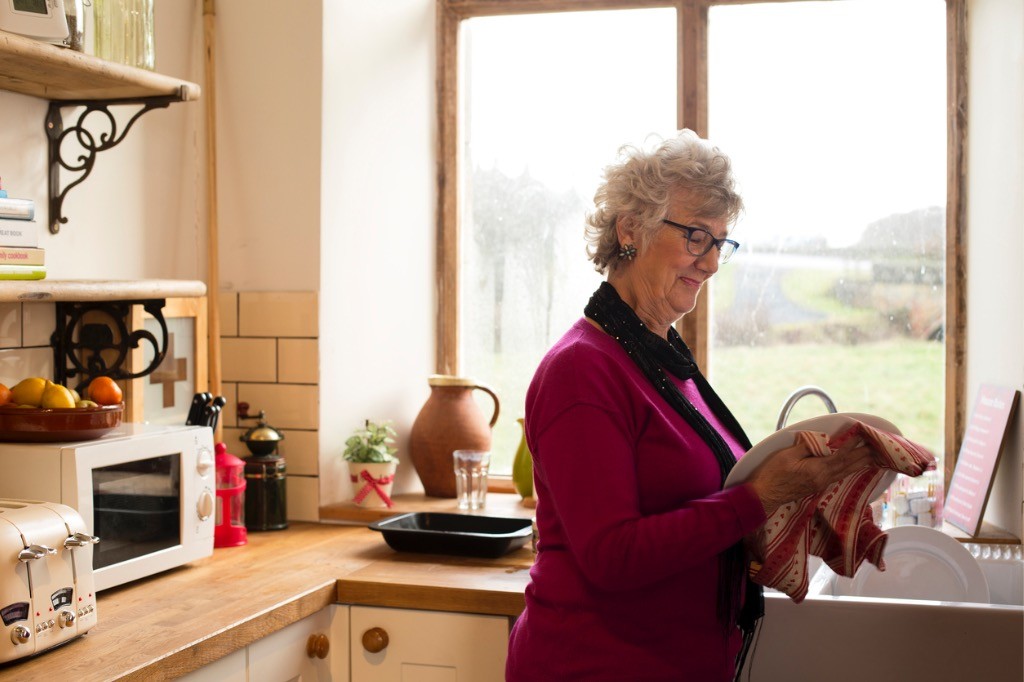Caregiver's Corner: Organizing Safety

By Ashley Bieber
We have heard the words “safe at home” a lot this year. However, for some home is not a place that is safe for them, and now more than ever there is a need to make home a place that promotes both mental and physical health and wellbeing. One way to help make home a safer place is by getting organized. Many do not know this, but scientists have found that clutter in your home or being overly disorganized can have negative impacts on your safety, mental and physical wellbeing, and even on your relationships and caregivers.
As far as basic physical health, having excess clutter can create fire and/or fall hazards as well as dust and mold issues in the home. Beyond these hazards, the inability to find things or having space in the kitchen to work can impact your food choices. This can result in choosing something easy instead of healthy when it is time for meal preparation which has a direct impact to your health.
Being overly disorganized and having clutter in your home also creates clutter in your mind. Not being able to find things or being confronted with stacks of unfinished projects increases stress levels and can contribute to anxiety and depression issues. This can also impact your ability to sleep which has an impact on both your mental and physical health. Reducing the clutter and being more organized reduces the feeling of being overwhelmed and increases productivity and energy levels.
When it comes to relationships, sometimes people are uncomfortable having visitors or going to visit places that are overly cluttered. Be honest, have you ever avoided having someone over because you would have to clean up? We are all guilty of this at one time or another. However, sometimes our clutter hurts others. According to a 2014 study when clutter turns to hoarding disorder the stress and burden felt by family and caregivers was found to be greater than the stress and burden felt by caregivers for individuals with dementia.
I am not a scientist, but I am a life long collector of stuff. It seems that clutter is more baggage than just the luggage in the closet that you can’t remember the last time you used. Clutter is something that is making your home less safe and is impacting your physical and mental wellbeing and maybe even your relationships.
For some, these facts are just as overwhelming as the clutter itself. However, getting better organized doesn’t require perfection, only improvement. My suggestion is to start small and give yourself plenty of time and grace during the process. Pick a room or closet and start sorting. Some for the trash, some to donate, some to sell, some to keep, and plenty of undecided things that can be boxed up and dated to revisit later. Again, the goal is not perfection, the goal is to get rid of some of the baggage so you can have a safer home and live a happier and healthier life.
The next Family Caregiver University class will be held on Thursday, September 24, 2020: 1:00 -3:00 p.m. via ZOOM. The class will focus on the changes of Organizing for our Emotional Health.
To register for the class, please call call (888) 456-5664. Other resources for caregivers can be found on www.caregiverresource.net
Caregiver’s Corner is provided as a public service of the Caregiver Resource Network. The Caregiver Resource Network is a collaboration of West Michigan organizations dedicated to providing for the needs and welfare of family and professional caregivers within the community. Funded by the Area Agency on Aging of Western Michigan with Older American’s Act Title IIIE, Family Caregiver Support funds.
References:
Dury, H., Ajmi, S., Fernández de la Cruz, Lorena, Nordsletten, A. E., & Mataix-Cols, D. (2014). Caregiver burden, family accommodation, health, and well-being in relatives of individuals with hoarding disorder. Journal of Affective Disorders, 159, 7-14. doi:10.1016/j.jad.2014.01.023
Tagged:

